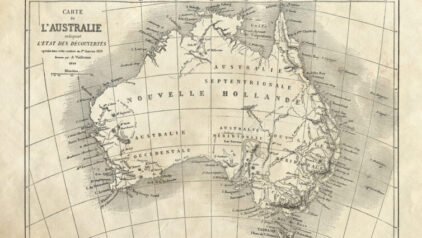The History of Surnames: What Was the First Surname Ever Documented?
- By Gavin Crawley ·


It’s easy to take surnames for granted, as they’re just part of who we are. The thing is, surnames haven’t always existed, and they were invented more recently than you might think. In the grand scheme of human history, they’re a relatively new addition to the way we live our lives.
So, where did family surnames come from? Why were they introduced? When did it happen, and what was the first one to be officially recorded? In this article, we’ll be answering these questions as we examine the roots of having a second name.
The Origins of Surnames
Once upon a time, people were known by a single name, as that was more than enough for those living in small communities. Everyone knew who John or Alice was, but as populations grew and towns and cities formed, the need for surnames arose.
Surnames helped to differentiate people sharing the same first name, and, just like that, John the blacksmith became John Smith, Alice who lived near the hill became Alice Hill, and so on. These names stuck, and they were then passed down from generation to generation.
The most common surname types include:
- Patronymic (e.g. Johnson, O’Connor, MacDonald — meaning “son of…”)
- Occupational (e.g. Baker, Taylor, Shepherd)
- Locational (e.g. Hill, Wood, Atwater)
- Descriptive (e.g. Short, Strong, White)
When you know where a surname comes from, it can help you make sense of certain records or spot unexpected connections. It’s a small detail that might just bring your ancestor’s world into sharper focus.
What Was the First Surname Ever Recorded?
While family names developed at different times around the world, the earliest documented surname is widely believed to be “O Cleirigh” (modern: O’Clery), which can be found in Irish annals dating back to 916 AD.
The O’Clery family were hereditary historians and poets, which represented high-status roles in medieval Irish society. Their name comes from the Gaelic Ó Cléirigh, meaning “descendant of the clerk or cleric”, and it’s a classic example of a patronymic surname.
In China, family names go back even further, with some estimates suggesting as early as 2852 BC, though the documentation to back it up is harder to trace. The ancient Zhao surname appears in early texts and is still common today.
What Your Surname Can Reveal
So, what else can we derive from someone’s surname? Well, it can hint at what your ancestors did for a living, where they came from or even the kind of personality they had. For example, a name like Chapman suggests they were a trader, whereas Greenwood might point to them living near a forest.
When you’re researching your family history, surnames can help confirm records, highlight geographic roots, or connect you with others researching the same lineage. Here are a few tips to think about when doing so.
- Check surname dictionaries or genealogy databases to learn about their meaning and origin.
- Look at historical records like censuses, electoral rolls, and immigration documents to trace where your surname has appeared.
- Pay attention to spelling variations, as names often changed or were recorded phonetically.
- Use online forums or surname projects to connect with others who might be researching the same family line.
- Map the name geographically using tools that show surname distribution over time, as this can reveal migration patterns or regional clusters.
Exploring your surname can uncover where your family started, how they moved, and what shaped their identity. Using tools like MyHeritage’s Last Names Directory, you might be surprised how far back the trail goes.
Using Surnames to Build Your Family Tree
Surnames are more than just labels. They’re something that can give you a starting point, such as a place, a trade or a connection to others with the same name. They can help you narrow down your search, confirm a hunch, or lead you to records you didn’t know existed.
Furthermore, they can help you understand how a name has changed, or where it appears across different regions, records, and spellings. Added depth is what’s on offer, and a clearer view of who your forebears were.
If you want to start tracing your surname right now, you can do so at MyHeritage.com. New to family tree-building? No problem, just take a look at our Getting Started Guide that tells you what you need to know.










